Barna’s current report, “New Insights into the Generation of Growing Influence: Millennials In America,” is a portrait of a generation adrift, dancing on the edge of a cliff, and reflective of generations of civilisational betrayal by intellectual, policy/political, media and educational leadership leading to a destabilised culture. And so, this cannot wait, triple bereavement life crisis or no, this needs to be highlighted and preliminarily assessed here at UD:
The report’s snapshot summary tells the grim story in outline:
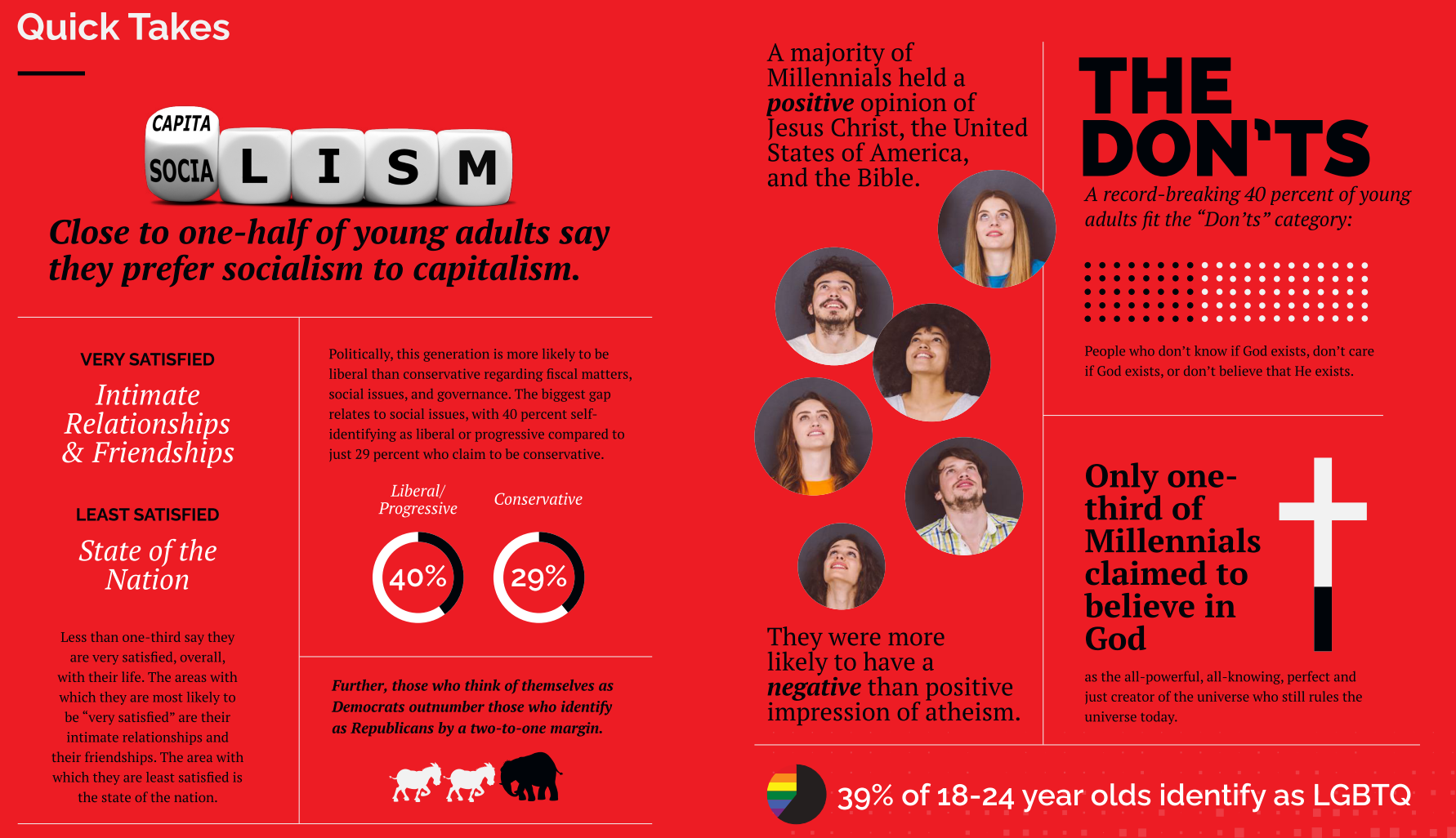
And:

Also, we may add on Religious identification, affinity and affiliation:
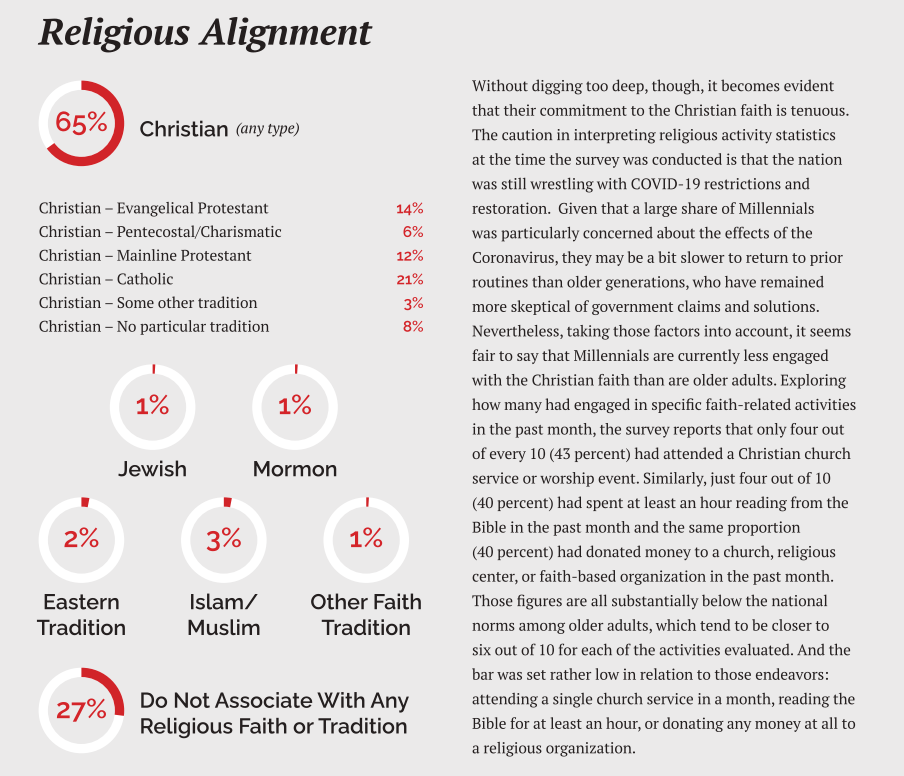
We can start with the obvious, as within living memory of those of us who were of age to notice, between 1989 and 1991, Marxism’s credibility as a principle of economic organisation collapsed before our eyes. So, if the immediately following generation does not understand such after its seventy years of chaos, tyranny, state led murder of over 100 millions and outright economic failure, we are dealing with a generation that were deliberately misled by ideologues who cared not a whit for that horrific track record. One that is actually worse than that of Communism’s kissing cousin, the National Socialist German Worker’s Party (Nazi, for short). (And yes, they meant the “Socialist.”)
So, first and foremost we are dealing with a deeply manipulated generation robbed of objective truth about pivotal worldview, policy, history, ideology and personal matters. That indicts at least two to three full generations of intellectual, policy, media and educational leaders and influencers, with implications across the full span of the pillars of community influence:
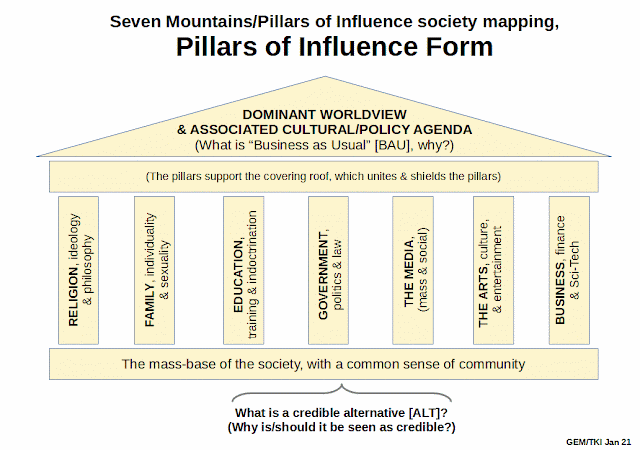
Likewise, the Overton Window speaks:
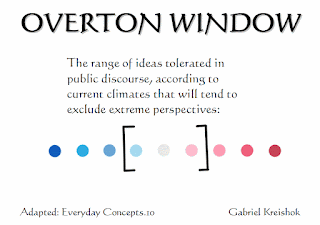
Where, the modified political spectrum is therefore also instructive on the peril:
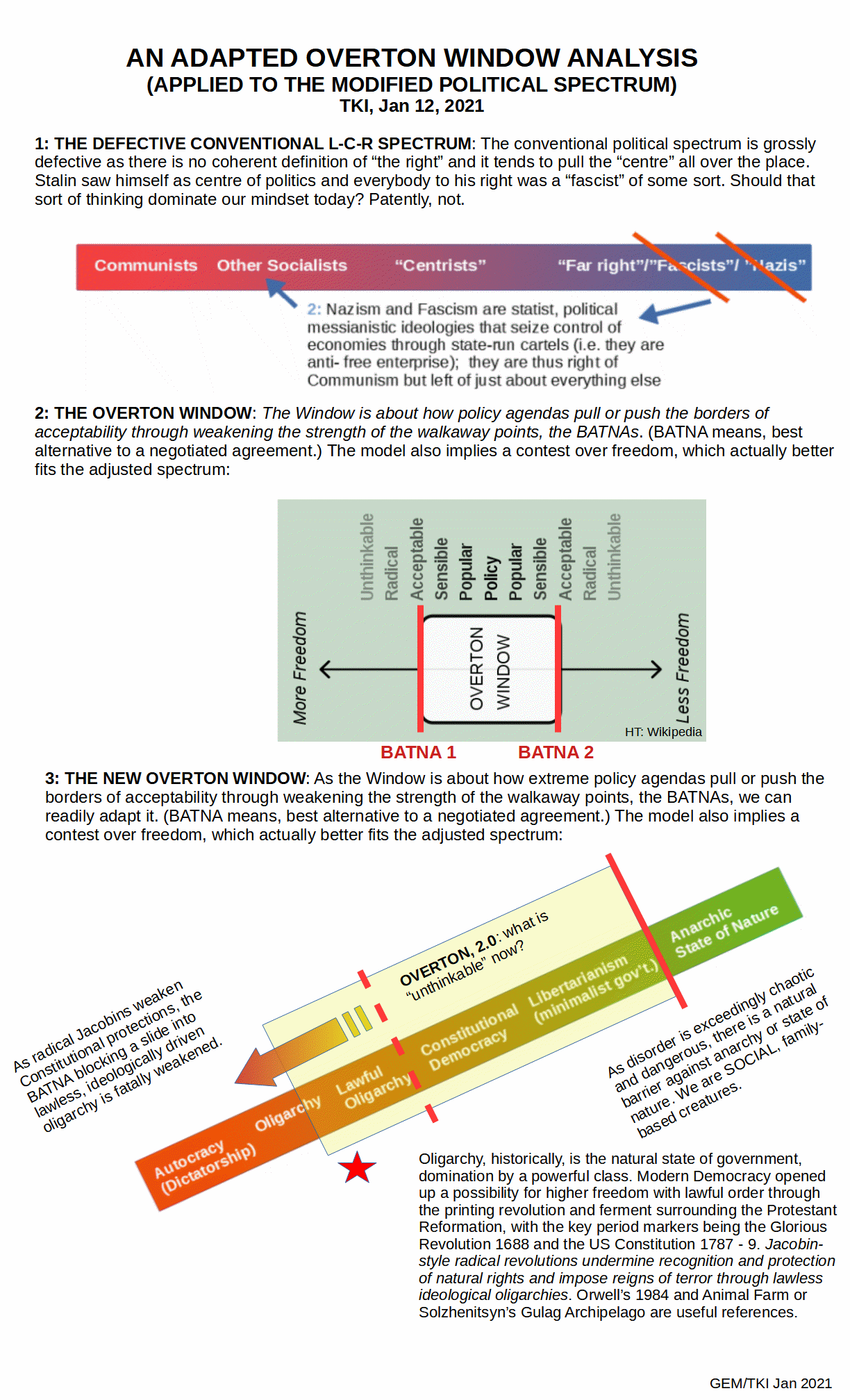
So, it is unsurprising to see the overall outline being sketched. Selecting key points:
- almost half of those born 1984 – 2002 prefer socialism to capitalism
- a majority (likely with a large opposed minority and that’s the obvious trend-direction) “held a positive opinion of Jesus Christ, the United States of America and the Bible”
- Confirming that inference, 40% “don’t know if God exists, don’t care if God exists, or don’t believe that He exists.” (God, the necessary and maximally great being at reality’s root is the single most important point of knowledge of reality; where, a serious candidate necessary being either exists as framework to any possible world or is impossible of being, the latter never having been shown. So the hyperskeptical indifference is telling on intellectual breakdown.)
- Unsurprisingly, in this light, only 1/3 claim to “believe in God as the all-powerful, all-knowing, perfect and just creator of the universe who still rules the universe today”
- parallelling this, “Roughly two-thirds . . . align themselves with the Christian faith”
- likewise, “[j]ust over one-quarter of them said they do not associate with any religious faith”
- “39% of 18-24 year olds identify as LGBTQ” (Historically, in the West, 1 – 3% have been practicing homosexuals but this proportion globally ranges from vanishingly small to 100% forced participation through institutionalisation, in different cultures.)
- “[t]hree out of four . . . believe all religious faiths are of equal value”
- on “social issues,” 40 percent [a now familiar figure] identify as liberal or progressivist, with 29% as conservative.
- they identify as Democrats vs Republicans 2:1, revealing the predominant ideological influencers of their formative years
- “[m]ost Millennials reject the existence of absolute moral truth and identify feelings, experiences, and advice from family and friends as their most trusted sources of moral guidance” (That is, they drift with the cultural flow and thus those who dominate education and media.)
- likewise, three out of four “said that they are still searching for their purpose in life,” reflecting the influence of worldviews and cultural agendas that are antithetical to purpose, other than arbitrarily selected desires
- “[o]f the nine cultural influencer categories tested, none of them were trusted by a majority to “always or almost always tell the truth or do what is right.” (This cynicism reflects disintegration of social and cultural capital built up over generations.)
- “[t]he least trusted entities were entertainment celebrities, popular social media personalities, and elected government officials” (So, the influences come through peers and opinion leaders in families and groups.)
- “The most highly trusted influencers were their parents and friends”
- 2 out of 3 “admitted to avoiding interaction with someone if it was likely to produce conflict,” which tends to block change based on mutually critical reflection and to reinforce cultural echo chambers
- issues they prioritise indicate “never let a crisis go to waste” media domination of their thinking: “CORONAVIRUS MANAGEMENT, CLIMATE CHANGE, RACIAL DISCRIMINATION, ABORTION, THE ECONOMY”
The need for a sound counter-culture is patent. END